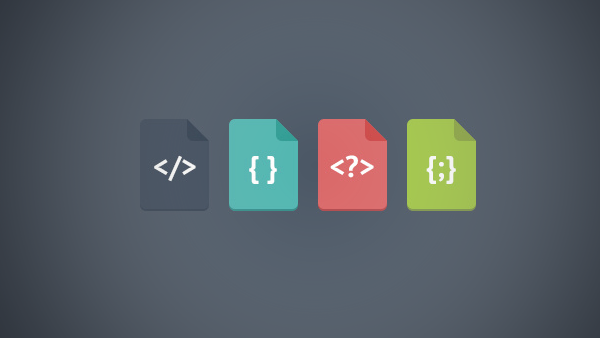一、什么是布局
1、现有的布局满足不了人们的需求
文档流、浮动、定位
2、用户中所需要的:
导航栏+内容
导航栏+内容+广告栏
从上到下、从左到右、定宽、自适应...
二、几种布局介绍
1、单列布局
一栏布局
一栏布局(通栏)
image
实现方式: 定宽 + 水平居中
width: 1000px; //或 max-width: 1000px;margin-left: auto; margin-right: auto;
范例:单列布局——一栏布局
关键代码:
<style>
.layout{
/* width: 960px; */
max-width: 960px;
margin: 0 auto;
}
//给 body 设置min-width 去掉滚动背景色 bug
body{
min-width: 960px;
}
#header{
height: 60px;
background: red;
}
#content{
height: 400px;
background: blue;
}
#footer{
height: 50px;
background: yellow;
}</style>/* 如图1:此时的定宽是width:560px */<div class="layout">
<div id="header">头部</div>
<div id="content">内容</div>
<div id="footer">尾部</div></div>/* 或通栏的单列布局,此时```.layout{border:1px solid}``` */ <div id="header">
<div class="layout">头部</div>
</div>
<div id="context" class="layout">内容</div>
<div id="footer">
<div class="layout">尾部</div>
</div>//或省标签,便于控制局部 如图2:<div id="header" class="layout">头部</div><div id="content" class="layout">内容</div><div id="footer" class="layout">尾部</div>如图:
image
image
2、双列布局
一列固定宽度,另一列自适应宽度
image
实现方式:浮动元素 + 普通元素margin+老子清除浮动
注: 布局时,考虑到渲染顺序,浮动元素代码优先写在其他元素前面,优先渲染
第1种场景:两列布局
范例:双列布局
<style>
#content:after{ //第3步:添加一个伪元素清除浮动
content: '';
display: block;
clear: both;
}
.aside{
width: 200px;
height: 500px;
background: yellow;
float: left; //第1步:浮动元素
}
.main{
margin-left: 210px; //第2步:margin-left(right)
height: 400px;
background: red;
}
#footer{
background: #ccc;
} </style>
<div id="content">
<div class="aside">aside</div>
<div class="main">content</div>
</div>
<div id="footer">footer</div>如图:
image
第2种场景:两列布局侧边栏aside在右侧:
<style>
#content:after{ //第3步:清除浮动
content: '';
display: block;
clear: both;
}
.aside{
width: 200px;
height: 500px;
background: yellow;
float: right; //第1步:浮动
}
.main{
margin-right: 210px; //第2步:margin
height: 400px;
background: red;
}
#footer{
background: #ccc;
} </style>
<div id="content">
<div class="aside">aside</div>
<div class="main">content</div>
</div>
<div id="footer">footer</div>如图:
image
3、三列布局
两侧两列固定宽度,中间列自适应宽度
image
实现方式:浮动元素+margin+伪类元素清除浮动
#content:after{ ////第3步:伪类元素
content: '';
display: block;
clear: both;
}
.menu{
width: 100px;
height: 500px;
background: pink;
float: left; //第1步:浮动
}
.aside{
width: 200px;
height: 500px;
background: yellow;
float: right; //第1步:浮动
}
.main{
margin-left: 110px; /*为什么要加margin-left*/ //第2步:margin
margin-right: 210px; //第2步:margin
height: 400px;
background: red;
}
#footer{
background: #ccc;
} <div id="content">
<!-- 为什么不是main在前面: 渲染顺序-->
<div class="menu">menu左</div>
<div class="aside">aside右</div>
<div class="main">content中</div>
</div>
<div id="footer">footer</div>如图:
image
4、水平等距布局
实现方式:处理老子(居中、防溢出)+浮动+ margin
<style>ul,li{
margin: 0;
padding: 0;
list-style: none; //取消列表的实心小黑点
}
.ct{
overflow:hidden; //溢出隐藏
width: 640px;
border:dashed 1px orange;
margin: 0 auto; //相对于页面的居中
}
.ct .item{
float:left; //第1步:浮动
margin-left: 20px; //第0步:提前设置
margin-top: 20px; //第0步:提前设置
width:200px;
height:200px;
background: red;
}
.ct>ul{
margin-left: -20px; //第2步:补充不够的20px
}</style><div class="ct">
<ul>
<li class="item">1</li>
<li class="item">2</li>
<li class="item">3</li>
<li class="item">4</li>
<li class="item">5</li>
<li class="item">6</li>
<li class="item">7</li>
<li class="item">8</li>
</ul></div>如图:
image
作者:饥人谷_远方
链接:https://www.jianshu.com/p/ca2bf49dfe8c

 随时随地看视频
随时随地看视频



